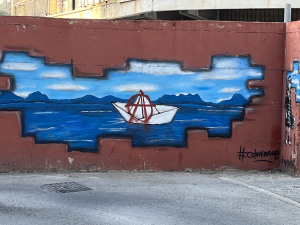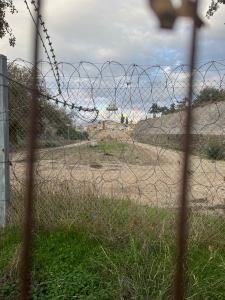Geography doctoral candidate, Caitilin McMillan, had been awarded a National Science Foundation Doctoral Dissertation Improvement Grant from the Human-Environment and Geographical Sciences Program to support her fieldwork. Caitilin’s dissertation project, “Social and Geographic Dimensions of Humanitarian Care Work”, examines how local humanitarian organizations in Cyprus, 50 miles off the coast of Turkey, have emerged from social movements across Europe that organize for asylum and inclusion for refugees. Her work unpacks how these groups create and practice forms of care to counter hostile “migration management” policies, characterized by violent border policing practices. Yet, how in a tense border context, the everyday work of providing care is also complicated by entanglements with the state and military that require humanitarian practitioners to navigate their duties to support refugees across operational, legal, and political constraints.
This doctoral dissertation project generates original empirical data on humanitarian practice and care work through ethnographic and qualitative methods. Working with human rights organizations based in Nicosia, this research advances scholarship on displacement and feminist geopolitics by examining care work as an intimate ‘meeting place’ at the geographical heart of questions over belonging, equity, and our ethical duties to each other. Cyprus, as a leading asylum-receiving country amongst European Union Member States, is a valuable setting to examine these dynamics situated along the EU’s external borders and shaped by its own ongoing partition. Caitilin believes examining different models of care in response to displacement is pertinent to improving policy and practice in the humanitarian sector. Her research highlights how islands, like Cyprus, find themselves at the center of deeply spatial struggles over the right to move, to seek refuge, and to belong that span historical and geographical scales.



